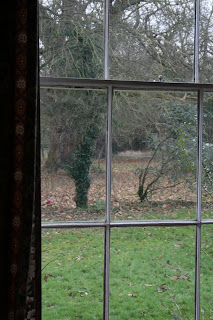I wrote about Richard Dawkins' book, The God Delusion, in December. Having now finished it, re-read bits and thought about the whole thing, I feel there's a bit more I ought to say about it.
You see, it becomes rather less clever in its closing chapters. The first four chapters are, I freely admit, pretty clever. Dawkins presents an atheistic critique of religious “arguments for God”, largely from a scientific viewpoint. He does it with confidence and verve (though I became a little bemused when he attempts to dismiss a philosophical giant like Thomas Aquinas in three pages. There is such a thing as intellectual arrogance).
In chapter 5, Dawkins “boldly goes” into some of his more eccentric theories about where religion comes from (given that it’s all such a ridiculous error). It’s interesting enough, this pseudo-scientific-psychological perusal – but not very convincing when you get behind the rhetoric. For instance, Dawkins’ talk about “memetics”, his own pet theory of cultural evolution, treats “memes” as though they were concrete entities you could look at through a microscope (rather than the – fanciful? – hypothesis of a scientist who just happens to also be a secularist determined to explain human behaviour without getting near reference to spirituality). So, chapter 5. A good read, but a great deal less convincing even than Dawkins wants us believe poor old Thomas Aquinas was.
Chapter 6 continues along broadly the same trajectory, gustily avoiding the truly difficult question of what “morality” can possibly mean in an amoral universe that came to be by amoral chance. He avoids this question whilst addressing it, which, fair enough, is clever – but hardly satisfying.
But I’m afraid silliness really sets in come chapter 7, the chapter on the Bible. His dismissal of the Old Testament (and its God) is so obviously duff that I’d like to make it available in the flyleaf of every Bible sold as an example of how fanatical atheism takes away even the ability to read. Oh, there’s more than enough rhetoric about the bloodbaths in the Old Testament and so on. But Dawkins entirely ignores the many, many examples of God’s heart for justice, mercy, and love which come through not only in the narrative parts, but more especially in the prophets.
Then there is his entirely silly assumption that God endorses the behaviour of every character in the Old Testament simply because they’re in the Old Testament. Yes, Lot’s assumption that rape of females is less offensive than rape of males is reprehensible: and we can be sure God agrees (read the rest of the Bible, like the prophets who speak for God and Jesus who is the speech of God). It seems to me that the Bible’s unflinching honesty about the flaws (nay, the downright moral evil) of some of its characters (even its heroes) is a point in its favour. And we would do well to note a point that Paul makes in the New Testament about the Old Testament: “These things occurred as examples to keep us from setting our hearts on evil things as they did”. Moral examples go both ways. The Bible is grimly realistic about human morality.
Then there’s Dawkins’ thin and scanty critique of the New Testament. So brief and scanty that I shall be even more brief and scanty here: Dawkins mocks Jesus as a pale-faced Galilean and then condemns him for His harsher sayings. A proverb about wanting cake and eating cake springs to mind. And here ends Dawkins’ response to the single most influential collection of texts in world history.
Chapters 8 and 9 fall into a similar pit of self-contradiction: Dawkins bangs on about fanatical, unthinking, fundamentalist religion (he seems to know of no other kind, except when he posits that intelligent and sensitive theologians are not worth dealing with since they’re in such a small minority. And that’s an argument?) His solution? He recommends fanatical, unthinking, fundamentalist atheism. “Trust me, it’ll make the world a better place,” he insists.
Perhaps the biggest example of Dawkins’ flagrant inconsistency is in his recommendations for bringing up children. To sum up: “It is immoral to teach children what to believe. Let them make up their own minds. Teach them Darwinist Evolution. It is the Truth. ” I kid you not. Read it yourself – chapter 9.
So I have to retract my comments about it being a clever book. “Smart, pacy, well-written,” yes. “Full of wit and drive,” yes. “Incisive” yes, if you mean making your points in such a focused way as to leave no room for discussion. “Witty, cutting,” certainly. “Very, very clever. And it knows it.” Sorry, no. Here I recant what I wrote previously. It is not clever. It is really rather stupid, beneath the bombast. But, sadly, it doesn’t know it.








































